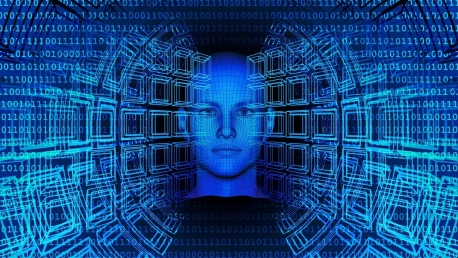As 2024 dawns, a technological revolution unfolds. Artificial Intelligence (AI), Blockchain, and Virtual Reality (VR) are merging, fundamentally altering our digital interactions. AI is enhancing our decision-making capabilities and efficiency, bringing intelligence to machines. Blockchain technology promises decentralized and secure digital transactions, changing how we engage in commerce. Meanwhile, VR is revolutionizing entertainment and communication, offering immersive experiences that blur the lines between the virtual and the real. As these technologies integrate, they are creating a unified digital landscape that transforms our interactions, commerce, and virtual experiences. This convergence marks a significant evolution in how we live, work, and play, heralding a synergistic future that’s woven into the fabric of our daily lives.
AI: The New Frontier of Intelligence
In the AI arena, strides in machine learning and neural networks have catapulted AI from a niche curiosity to a universal utility. Platforms like ChatGPT are redefining the interface between humans and machines, delivering conversations and assistance with an unprecedented semblance of human intelligence. This transition marks a monumental leap towards a future where AI is an invisible yet indispensable assistant, streamlining complex tasks and offering insights that distill years of data into actionable intelligence.The implications for such an evolution in AI permeate every industry. In healthcare, predictive analytics could offer early warnings for epidemics, and in the realm of logistics, AI can optimize routes in real-time to reduce costs and environmental impact. As these intelligent systems become omnipresent, the canvas of possibility expands, enabling a bespoke and anticipatory response to our needs, often before we even articulate them. It’s a brave new world where AI is the silent conductor of a symphony of efficiency and customization.
Blockchain: An Ecosystem of Trust
By 2024, blockchain technology is poised to transform digital transactions, becoming the cornerstone of a secure and transparent online infrastructure. As a decentralized ledger, blockchain’s breakthrough is its capacity to record unalterable and transparent histories of transactions, which significantly mitigates fraud and errors while rendering middlemen obsolete. This newfound efficiency could lower costs and streamline processes across various sectors.Blockchain’s impact isn’t confined to financial transactions. It offers individuals unprecedented control over their personal data, paving the way for digital sovereignty. With its integration into our daily digital dealings, blockchain technology is on track to achieve a level of reliability and omnipresence that parallels the internet, redefining trust and security in an increasingly digital world.
VR: Envisioning New Realities
Advancements in VR, exemplified by the innovative Apple Vision Pro, are set to revolutionize how we interact with the digital world, promising to make virtual environments nearly indistinguishable from reality by 2024. This leap will transform entertainment and education, offering multisensory experiences that extend beyond sight and sound to include touch, thanks to haptic technology.Education will benefit from VR’s ability to simulate historical environments, allowing students to learn by virtually walking through ancient cities. In the realm of corporate training, VR’s realistic simulations will provide risk-free, cost-effective training environments.As AI, Blockchain, and VR technologies merge, they will forge a new era marked by seamless digital landscapes and transactions. This technological synergy forecasts a future where our digital and physical realms are interwoven, making advanced tech a second nature to our daily existence.









